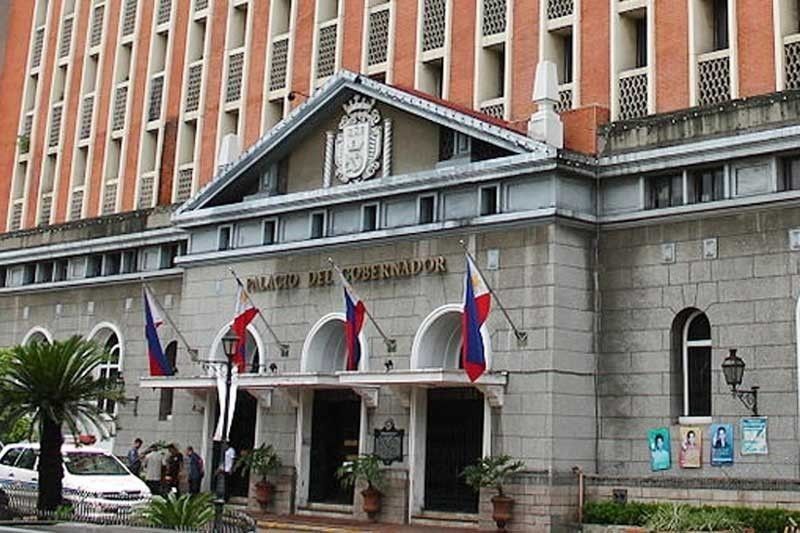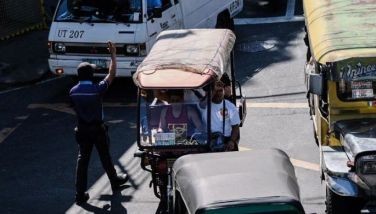Comelec eyes limit in physical campaigning in 2022

MANILA, Philippines — Not seeing an immediate end to the pandemic, the Commission on Elections (Comelec) is moving to regulate physical campaigning in the May 2022 elections to reduce the risk of voters and candidates contracting COVID-19.
Interviewed in Friday night’s episode of “The Chiefs” on Cignal TV’s One News channel, Comelec spokesman James Jimenez said the poll body is preparing to change the conduct of campaigning as the dangers posed by the pandemic are likely to still be present in 2022.
“It’s still very early (to say), but we are already studying the campaign landscape up to the point that we are now actually considering regulating physical campaigning because of the danger to the people,” Jimenez said.
He said the Comelec is now finding ways to make these prohibitions non-damaging to the rights of candidates to be heard and better known by the electorate.
He added that the Comelec is already moving for the online filing of certificates of candidacy (COCs) in October 2021.
But the poll official ruled out the likelihood of a postponement of the elections on account of the pandemic, since such would require constitutional amendments.
“This is a constitutional issue if you want to move the elections from 2nd Monday of May to any other day,” he said of the polls for president and other national and local elective posts in 2022.
In view of the prevalence of COVID-19, Jimenez said regulating physical campaigning for the first time would be a better alternative to postponing the May 2022 elections as proposed by Pampanga Rep. Mikey Arroyo.
The National Movement for Free Elections (Namfrel) has expressed strong opposition against the proposal. It said: “Postponing the elections violates the Constitution, contravenes the principle of regularity in the conduct of the elections, extends the term of elected officials and deprives the electorate of seeking accountability from elected officials through the ballot.”
So most likely, candidates would resort to campaigning online, giving Comelec the responsibility of regulating online campaigning just like in the 2019 polls, he added.
“Congress has consistently taken a hard pass on regulating social media. I don’t expect it’s going to be different this time around, especially now that everyone is relying on social media,” Jimenez pointed out.
During the 2019 elections, the Comelec partnered with social media platforms like Facebook in coming up with social media campaigning rules.
Challenges ahead
Jimenez conceded, though, that monitoring vote-buying will be more difficult for the Comelec with online campaigning. Vote-buying can be done easily via wireless transfers, he said.
Monitoring campaign expenditures, he said, would also be a challenge since half of Comelec’s employees are working from home.
“We need to coalesce with large number of agencies to handle all these things,” he said.
Also, the disruption caused by the pandemic has forced the Comelec to migrate different aspects of the elections to digital format, Jimenez revealed.
But he expressed confidence that Comelec is capable of completing the process with one-and-a-half years left before the elections.
Voting alternatives
The Comelec is also looking at alternative modes of voting for May 2022 such as casting ballots by mail and online voting, which would require legislation.
A bill allowing early voting is pending before Congress, however, Jimenez said it only covers about nine million senior citizens.
Absentee voting, on the other hand, has been allowed only for government officials and members of the media.
Comelec is also studying the possibility of extending the voting to about three days, just like in overseas absentee voting, to avoid a crowding of polling stations and easier enforcement of social distancing.
“That would thin out the number of people coming to the polling place. Instead of classrooms, we can also use wide open spaces like gymnasiums or basketball courts,” he said.
The downside is extended voting would be more costly and require additional budget for the Comelec to implement, Jimenez said.
Poll budget slashed
The Comelec proposal for a P30-billion budget has been slashed to P14 billion, an amount barely enough to hold elections using the old voting counting machines (VCMs) for just a day, Jimenez said.
“If we get the P16 billion that we lost then we would be in a much better position to handle these logistical changes,” he said.
Meanwhile, the Comelec has recorded low turnout of new registrants for the coming polls.
To date, only 221,000 registrants were posted in the past three weeks, prompting the poll body to ask the Inter-Agency Task Force for the Management of Emerging Infectious Diseases (IATF) to allow those qualified to vote who are below 21 and above 60 years to go out and register.
- Latest
- Trending



























